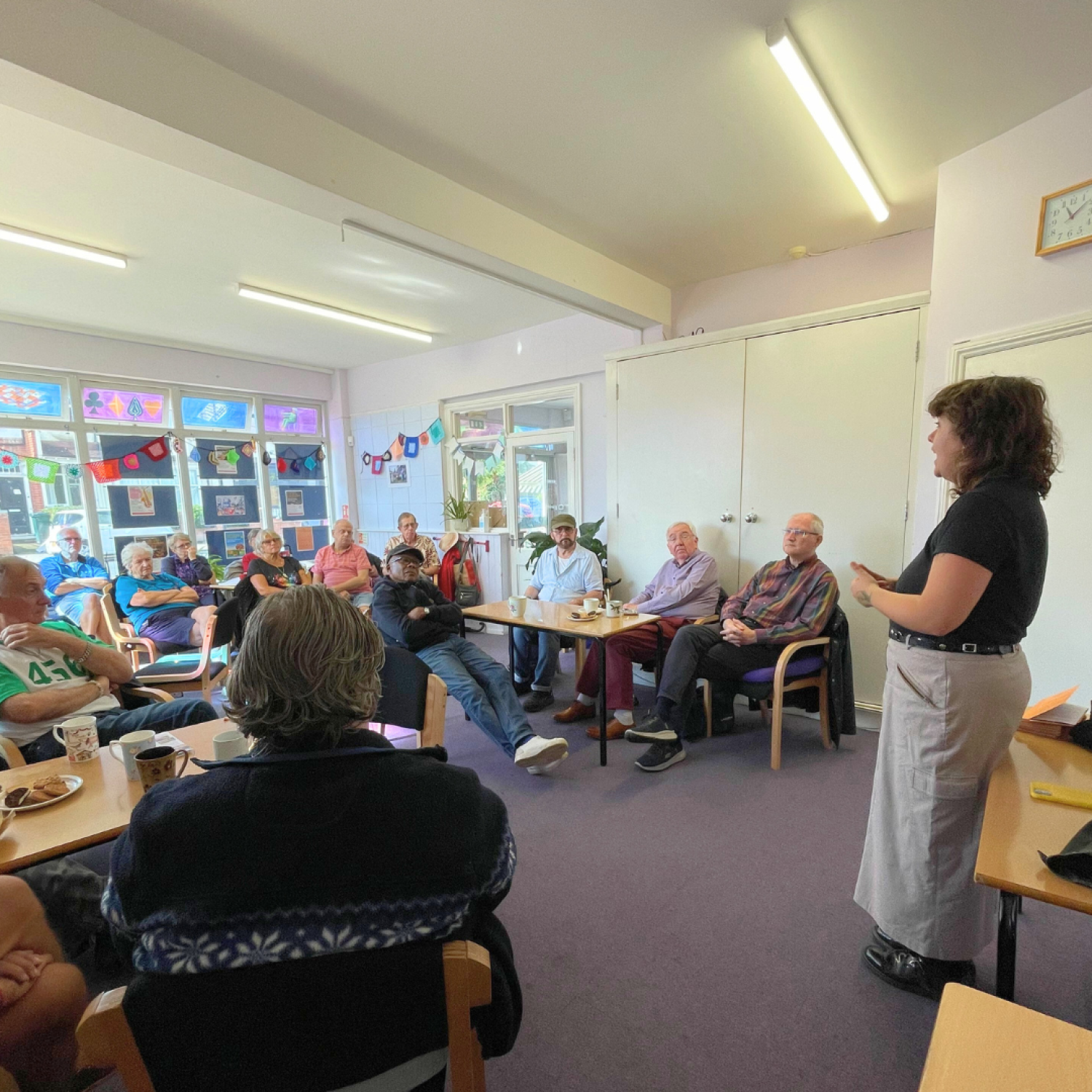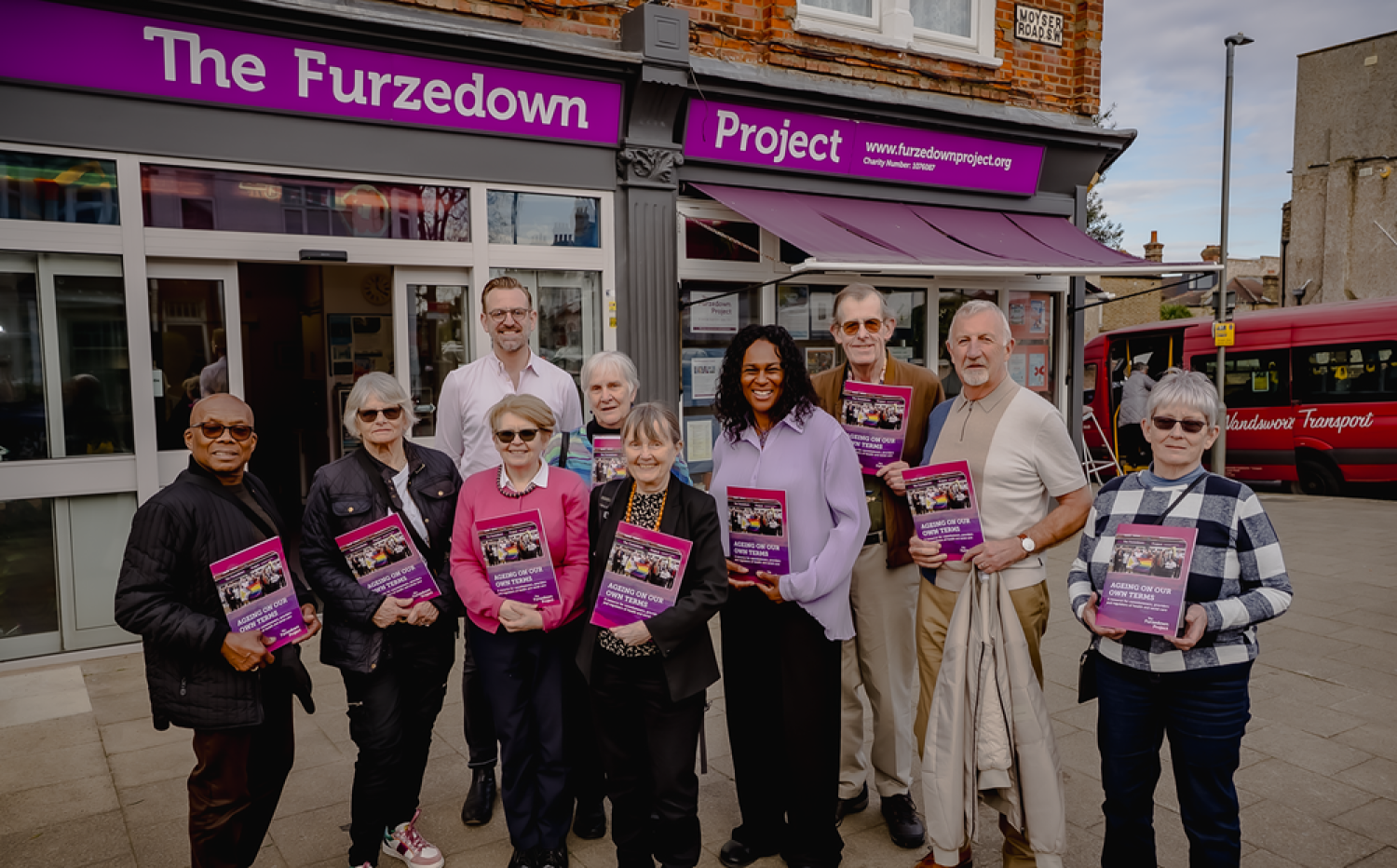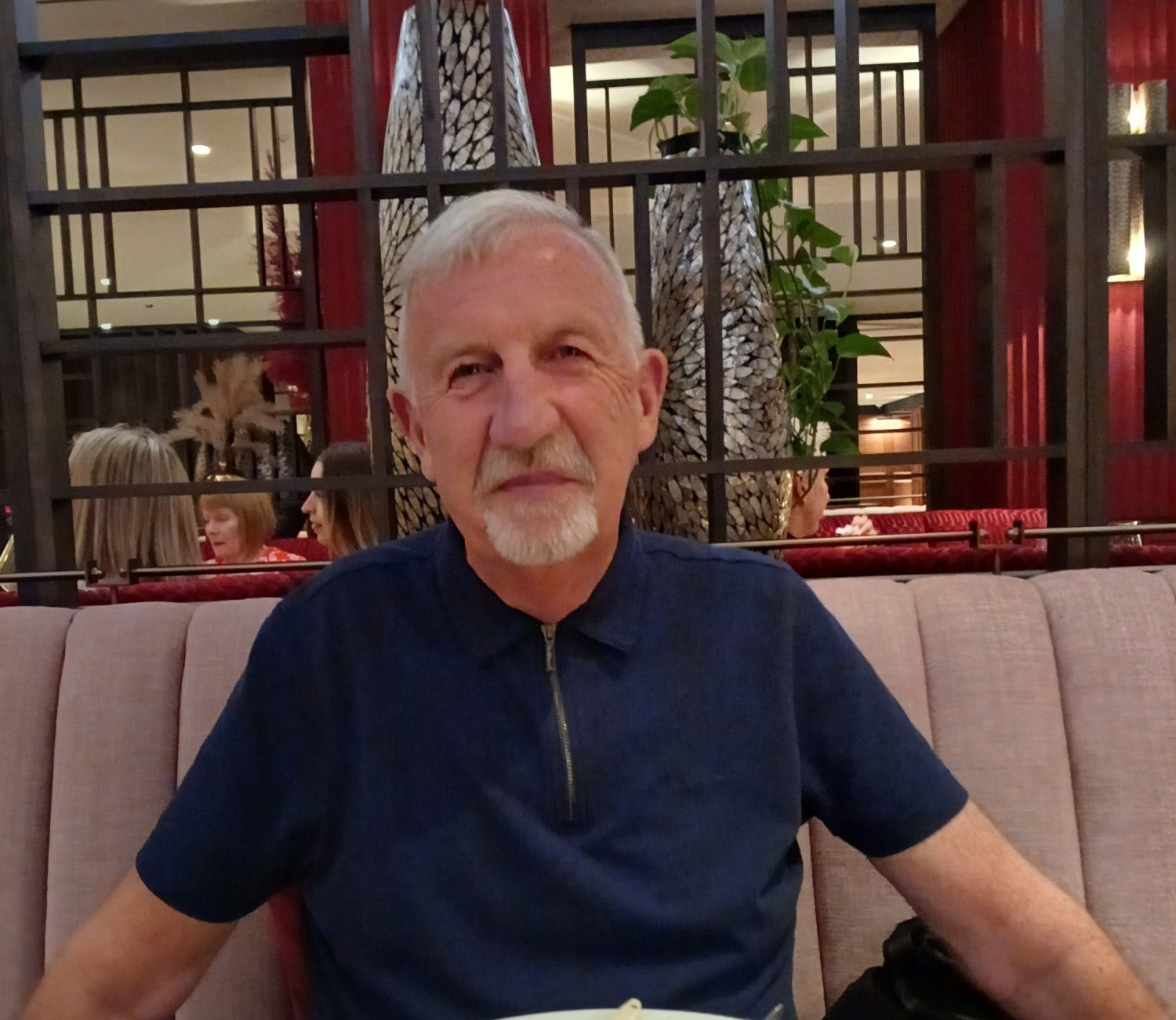Tell us a little about the 50+ LGBTQ Coffee Morning
It’s been going for just over eight years now. It’s a very welcoming group; it’s a way for people to meeting others of their community, share stories, and talk about things that concern them.
We've got a bit of a reputation now within the Furzedown Project as the group that appears to have the most fun and the most parties!
From your perspective, why do you think it’s so important to talk about death and dying, especially for older LGBTQ+ people?
I think people find it easy to talk about the things that concern them here at the Coffee Morning, and we as individuals can support each other- it’s seen as a safe environment.
For quite a lot of our lives, to varying degrees, we've led hidden lives or had difficult relationships with, for example, our relations and employers, and others we’ve come into contact with. I moved to London because I was living in a small town in North Wales with a small-town mentality. Coming to London, yes it was very anonymous, but I found my tribe and I then had the strength to come out.
There are some people who come here and say very little; there are some people for whom this meeting is the only social activity that they have.
Something we get strength from is the fact that many of us feel that the freedoms and the liberties the younger gay community have are something that our generation fought for - and we celebrate that.
Our discussion highlighted that many LGBTQ+ people are concerned about how they will be treated during end-of-life care, or when planning a funeral.
Yes - if you go into care, you ask yourself ‘am I going to be the only gay person in this care home’?
We've heard dreadful stories of people going into care and staff members have come in and prayed for them that this part of their identity might disappear. None of us wants to have to change who we are in any way.
We're not asking for anything unusual: we're just asking to be recognised and respected for what we are and what our past was. And that's what we would like at the end of life as well.
That’s why we produced Ageing on Our Own Terms, which lays out what we want to happen when we might need care within the community.


